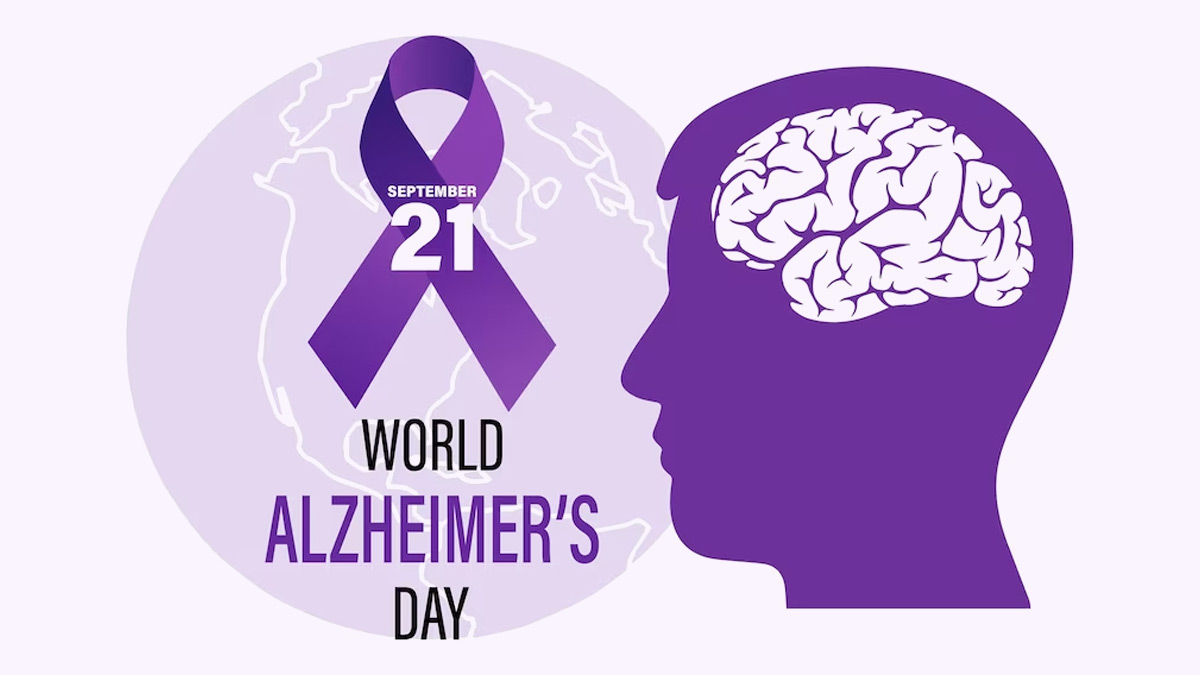
What could be worse than forgetting everything you once knew, and then eventually forgetting yourself as well? That is the question often posed by Alzheimer's Disease (AD), considered by some as a fate worse than cancer or even death. If you are not familiar with this devastating neurodegenerative condition, today’s occasion of World Alzheimer’s Day 2023 is the perfect moment for you to educate yourself.
Table of Content:-
Alzheimer’s affects millions of people worldwide, robbing individuals of their memories and cognitive abilities. The University Of Michigan reported that almost three million people are dealing with AD in India as compared to 4 million in the US. The university opinionated that the global prevalence of AD will be tripled by 2050, mainly due to the rapid increase in its numbers in India.
One of the most common questions surrounding Alzheimer's is when it begins and why. To answer the same, the team of OnlyMyHealth got in touch with Dr Pankaj Agarwal, Senior Consultant Neurologist and Head, Department of Neurology, Global Hospitals, Parel, Mumbai.
At What Age Does Alzheimer's Begin?

Commenting on the most basic question about AD, Dr Agarwal said, “Alzheimer's disease can start at various ages, but it most commonly affects older adults. The risk of developing Alzheimer's increases with advancing years, and it typically begins after the age of 65.”
Also Read: 7 Alzheimer’s Disease Facts To Be Aware Of On World Alzheimer’s Day 2023
“However, early-onset Alzheimer's can start earlier, even in one's 40s or 50s, especially in a small proportion of cases which are due to an unknown genetic cause,” he added.
Understanding The Causes Of Alzheimer's
“The exact causes of Alzheimer's is not fully understood, but there are several known risk factors, including genetics, age, and lifestyle,” shared Dr Agarwal. Going further into the factors shared by him, here is a deeper look at the risk factors of AD:

- Genetics: Genetic factors play the biggest role in both early-onset and late-onset Alzheimer's. Mutations in specific genes, such as the APOE gene, are the main factors that increase the risk of developing AD. However, a ray of hope is that, just like in the case of cancer, having these genetic factors does not guarantee that an individual will develop Alzheimer's.
- Abnormal Protein Buildup: Alzheimer's wreaks havoc through the accumulation of abnormal protein deposits in the brain. These deposits interfere with normal brain functioning and can lead to cognitive decline as well, causing symptoms such as dementia, the most significant aspect of AD.
- Inflammation and Oxidative Stress: Chronic inflammation and oxidative stress are also believed to contribute to the development and progression of AD.
- Lifestyle Factors: Certain lifestyle factors, such as a sedentary lifestyle, poor diet, lack of mental stimulation, and limited social interaction, are considered the second most contributing risk factor, after genetics, of AD.
- Cardiovascular Health: Conditions that damper your heart, such as high blood pressure, high cholesterol, and diabetes, are also known to increase the risk of Alzheimer's.
How To Prevent Alzheimer’s Disease?

While there is currently no cure for AD, early detection and management of risk factors can help you significantly delay its onset or slow its progression. “To potentially reduce the risk of Alzheimer's, focus on maintaining a healthy lifestyle. This includes staying mentally and socially active, eating a balanced diet, getting regular exercise, managing cardiovascular health, and avoiding smoking and excessive alcohol consumption,” advised Dr Agarwal.
Also Read: Taking Frequent Naps Daily Can Put You At Risk of Alzheimer’s, Finds Study
“Additionally, staying mentally engaged through activities like reading, being socially active and learning new skills may help support brain health,” he added. Explaining the steps in detail to provide a listed guideline for delaying AD as much as possible, Dr Agarwal shared:
- Regular Health Checkups: Stay proactive about your health by scheduling regular checkups with your healthcare provider. If you notice lapses in memory, difficulty focussing, or any unusual cognitive changes within you or those around you, then you should not delay following this step at all.
- Healthy Lifestyle: Maintain a healthy lifestyle with regular exercise, a balanced diet rich in antioxidants and omega-3 fatty acids, mental stimulation, and social engagement.
- Manage Chronic Conditions: If you have conditions like hypertension, diabetes, or high cholesterol, work closely with your healthcare team to manage them effectively, as they have proven track records of triggering AD.
- Stay Mentally Active: Engage in activities that challenge your brain, such as puzzles, reading, and learning new skills.
- Socialise: Maintain social connections as social engagement can have a positive impact on cognitive health. Poor mental health, which can be caused due to toxic surroundings or loneliness, is a big risk factor for Alzheimer’s.
In conclusion, it’s a scary thought but Alzheimer’s is an unstoppable train that can only be halted for a while, but it will eventually trample everyone in its way if it really wants to. The medical community is still working day and night to understand what exactly causes AD, so they can find a cure or at least concrete delaying measures. That is why it is of utmost importance that you educate yourself about AD, so you can prevent it for as long as possible, and employ methods to delay its progression once it lays its deadly hand on you or your loved ones. Early detection and adopting a healthy lifestyle are your only allies for now against Alzheimer's, offering a sliver of hope for a healthier and more vibrant cognitive future.
How we keep this article up to date:
We work with experts and keep a close eye on the latest in health and wellness. Whenever there is a new research or helpful information, we update our articles with accurate and useful advice.
Current Version